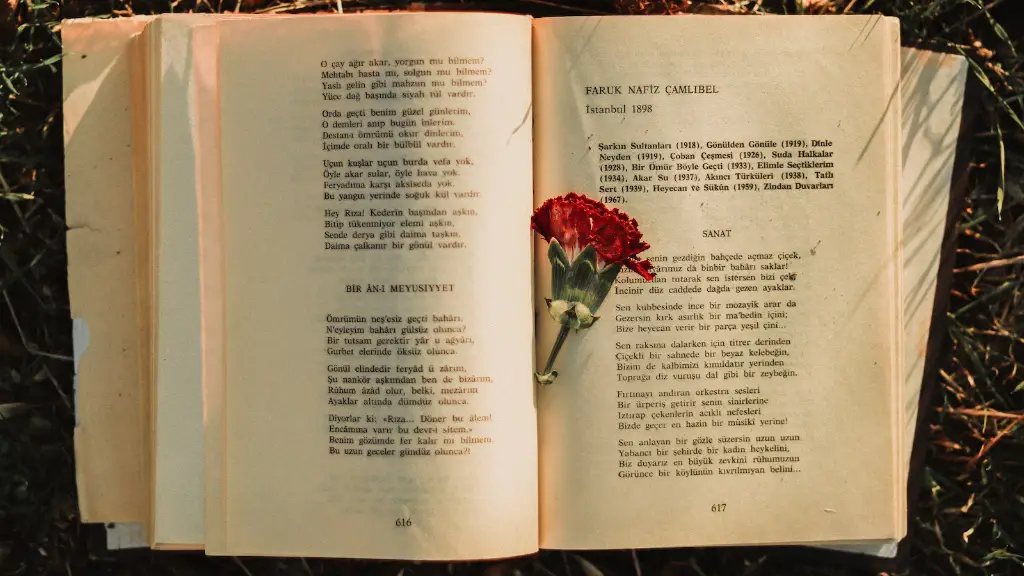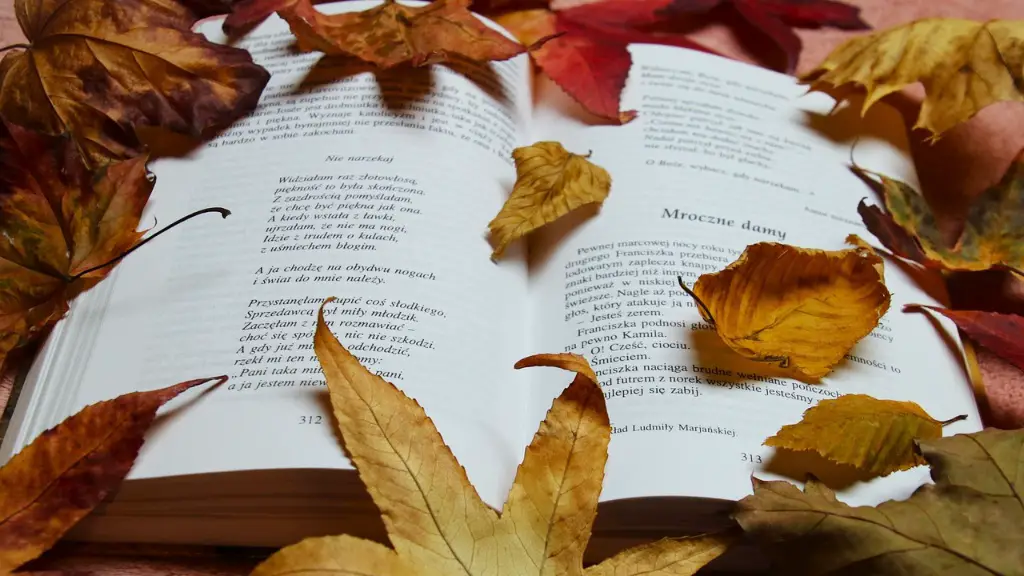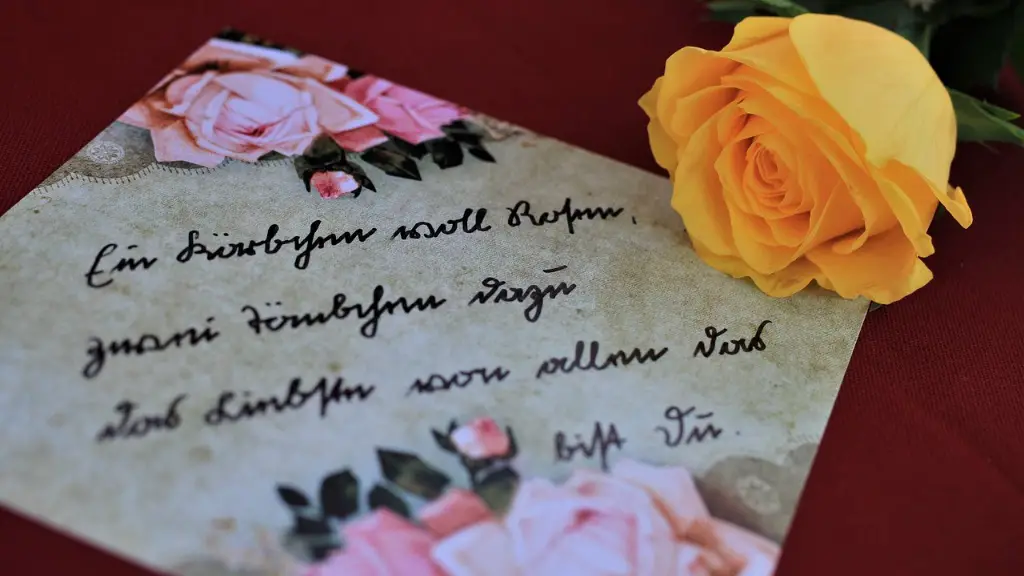Definition and History of Drama Prose and Poetry
Drama prose and poetry are two forms of literature that have been around since ancient times. They are both integral parts of the story-telling tradition, and are often used to explore themes, express emotion and communicate ideas to an audience. Drama prose is written form of theatre, often incorporating dialogue between characters and music. It is often a more complex form of storytelling than prose and poetry, and relies on the establishment of characters to deliver powerful messages and drive the plot. On the other hand, poetry is a form of literature in which ideas and emotions are expressed through the use of poetic language. Poetry relies heavily on the rhythm and beauty of language, as opposed to the narrative aspect of drama prose.
Stylistic Differences Between Drama Prose and Poetry
Although both drama prose and poetry are forms of literature, they each have distinct styles and characteristics. Drama prose is often characterized by intricate character and plot development, relying heavily on dialogue and often providing detailed descriptions of characters and settings. By contrast, poetry focuses more on the beauty of language. Poetry relies heavily on imagery, rhythm, and often emphasizes the aesthetic or emotional aspect of the writing. In addition, poetry often relies on allegory, metaphor, and other figurative language to express ideas and convey powerful messages.
The Power of Drama Prose and Poetry
Drama prose and poetry both have the power to evoke emotion and communicate ideas to a wide variety of audiences. Drama prose often makes use of powerful and emotive language, as well as intricate characters and plot development, to create a captivating and engaging story. On the other hand, poetry relies heavily on the rhythm and beauty of language to invoke emotion in readers and convey powerful messages. By using figurative language such as allegory and metaphor, poetry can often express ideas in a way that is both creative and powerful.
Relationship Between Drama Prose and Poetry
Despite the stylistic differences between drama prose and poetry, the two forms of literature often overlap and intersect in interesting ways. For example, many playwrights and poets make use of both forms of literature to create hybrid works that often take advantage of the strengths of both styles of writing. Poem-plays, such as Shakespeare’s Macbeth, combine the power of prose and poetry to tell deep, moving stories that remain captivating to this day. In addition, many plays have been set to poetic monologues, which are often used to evoke emotion and set up powerful moments.
Influence of Drama Prose and Poetry in Popular Culture
Drama prose and poetry have both had a huge influence in popular culture. For example, many plays, both classic and modern, have been adapted into movies, TV shows, and books. In addition, poetry is often used in songs and other forms of media to captivate audiences with powerful messages and emotions. Drama prose and poetry have both remained popular forms of literature throughout the centuries, and their influence on popular culture can be seen in many different forms.
Educational Impact of Drama Prose and Poetry
Drama prose and poetry can be powerful tools in the education of young students. Especially in the earlier years, drama prose and poetry can be used to teach essential reading and writing skills, as well as develop a strong understanding of literary conventions. By exposing young readers to literature in different forms, students can gain a better understanding of language and storytelling, as well as develop an appreciation for literature. In addition, drama prose and poetry can also be used to teach students about history and culture, as well as introduce them to different ways of thinking and perceiving the world.
The Influence of Drama Prose and Poetry on Human Connection and Emotion
Drama prose and poetry can have an incredible influence on human connection and emotion. Through stories, plays, and poems, people are able to connect with each other in powerful and meaningful ways. Drama prose and poetry can serve as expressions of human experience, allowing readers and audiences to understand and sympathize with characters, even in the most difficult situations. Furthermore, poetry and drama can be powerful outlets for emotion, providing readers and audiences with a safe space to explore their own emotions, as well as those of the fictional characters.
Exploration of Morality and Values in Drama Prose and Poetry
Drama prose and poetry are often used to explore difficult questions of morality and values. Through the exploration of characters, writers and playwrights can dig deep into moral dilemmas, while poem writers can express their own thoughts and feelings on such matters. For example, many classic plays and poems explore themes such as justice, love, and human nature in powerful and captivating ways. In addition, modern writing often examines modern issues such as racism, sexism, and xenophobia, allowing readers to gain insight into real-world struggles.
Discussion of Politics and Current Events in Drama Prose and Poetry
Drama prose and poetry are often used as outlets for exploration in the political arena. Playwrights and poets often have an opinion on current political and social issues, and often use their work to express these views and beliefs. Many writers and playwrights have used drama prose and poetry as an entry point for political discourse, which can be used to explore and analyze current events from different perspectives. In addition, many plays and poems explore issues in-depth, and can be used to provide insight on a wide range of political and social issues.
Meaning and Purpose of Drama Prose and Poetry
At its core, drama prose and poetry serve as vehicles for expression and exploration. Through the use of stories and language, writers and playwrights are able to convey powerful messages, evoke emotion, and explore themes in a creative and captivating way. Furthermore, they serve as outlets for social discourse and can be used to provide commentary on current events, politics and other difficult topics. In addition, drama prose and poetry also serve as essential works of literature, preserving history, culture and language for generations to come.


